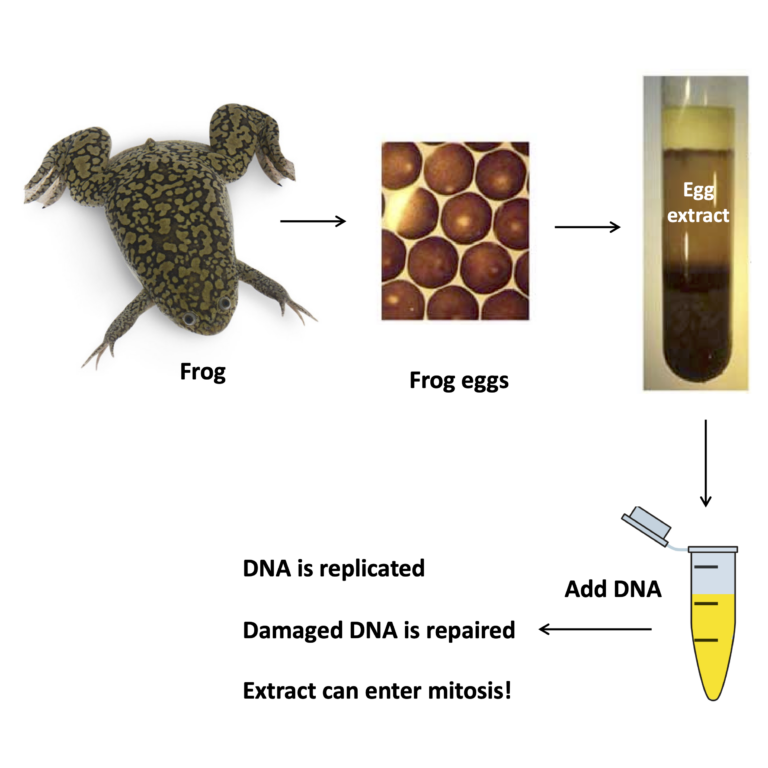My lab uses frog eggs to study many different aspects of cell biology, including DNA replication, DNA repair, and cell cycle control. All of these areas connect to human cancers. The reason frog eggs are so useful is that they are enriched for the proteins needed for DNA replication and repair. Because these proteins are in high abundance we can actually crush the eggs to make a cell extract and when we add DNA to this extract it will get replicated and repaired! In addition, these cell free extracts are capable of cell cycle progression, meaning that once the DNA is replicated the extract will enter mitosis, just as intact cells do. The ability to run the cell cycle in a test tube affords many advantages. Proteins can be removed or added to extract very easily, and this allows mechanistic analysis of their function. Most proteins that are involved in DNA replication and cell cycle progression are essential for cell viability, and thus when they are depleted from living cells the cells begin to die. With an in vitro system, we can study the roles of essential proteins without concerns about secondary effects on viability. In my lab we study many proteins that have been directly implicated in human cancers, like BRCA1 and BRCA2. In summary, frog eggs have much to tell us about the cellular pathways that protect against the development of cancer.
